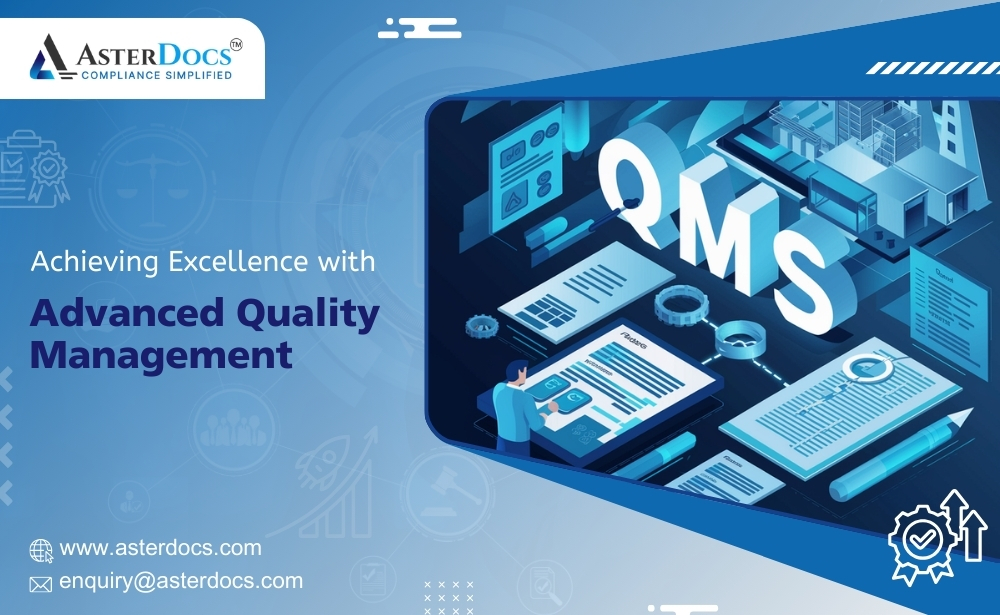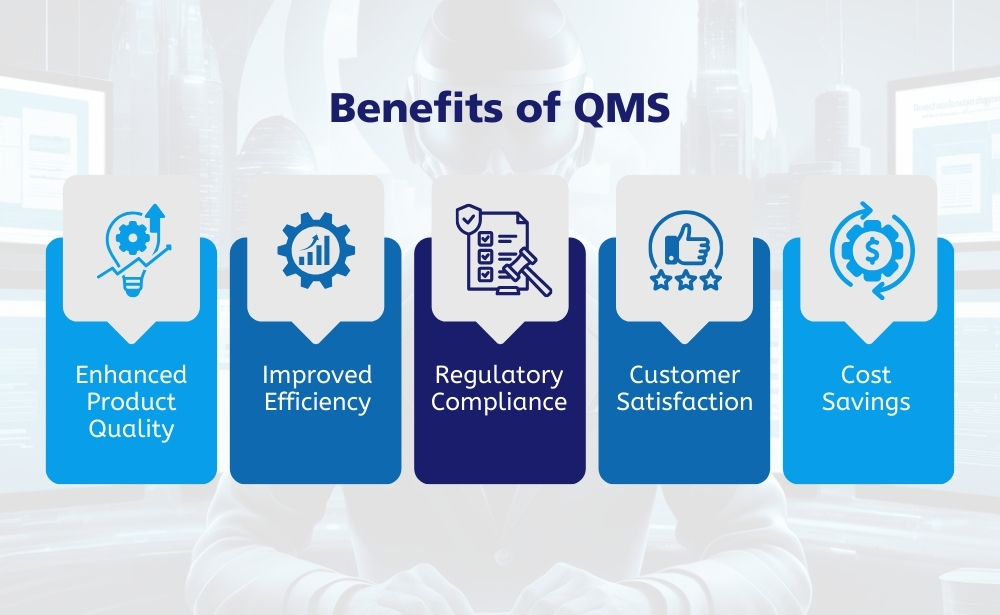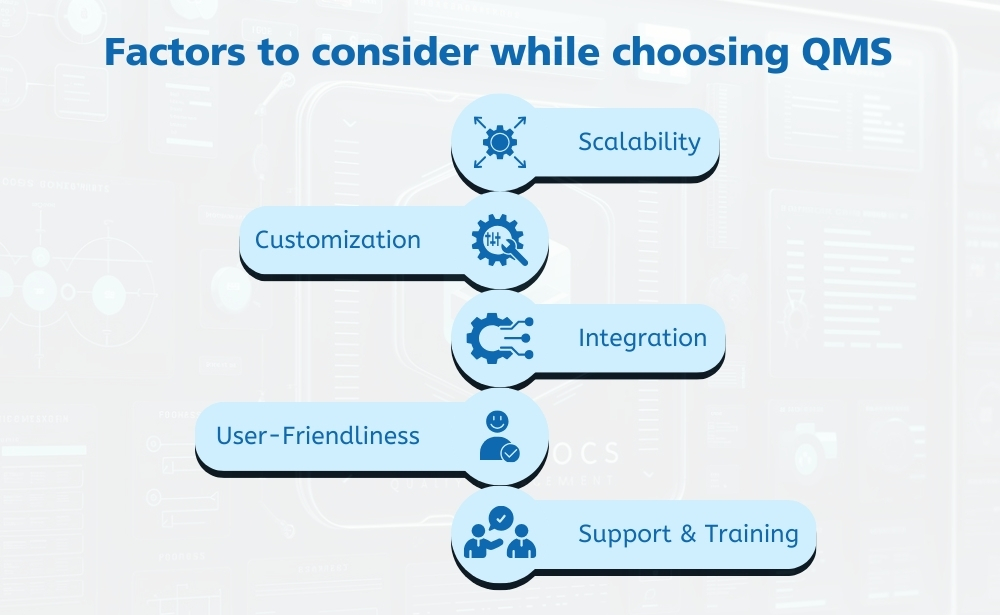Quality management systems in manufacturing are crucial to ensuring that products meet stringent compliance and quality standards. Implementing an effective quality management system can significantly improve both your manufacturing processes and customer satisfaction.
QMS Essentials: Key Features and Components
An effective QMS integrates several key features and components to streamline manufacturing processes:
- Document Control: Ensures all documents are current, accessible, and accurate.
- Process Control: Standardizes production processes to maintain consistency.
- Risk Management: Identifies and mitigates potential risks in production.
- Continuous Improvement: Encourages ongoing enhancements in processes and products.
- Employee Training: Ensures staff are well-trained on QMS protocols and best practices.
- Supplier Quality Management: Maintains high standards for raw materials and components.
Benefits of Implementing Quality Management Systems in Manufacturing
Implementing a QMS offers numerous advantages, including:
- Enhanced Product Quality: QMS ensures products meet or exceed customer expectations.
- Improved Efficiency: Streamlined processes reduce waste and increase productivity.
- Regulatory Compliance: Helps meet industry standards and regulatory requirements.
- Customer Satisfaction: High-quality products and reliable processes boost customer trust and loyalty.
- Cost Savings: Reduces rework, recalls, and returns, leading to significant cost savings.
Choosing a QMS: Factors to Consider
Selecting the right quality management systems in manufacturing involves considering several factors:
- Scalability: Opt for a quality management system (QMS) that can scale alongside your business growth, accommodating increased production volumes and evolving operational needs without significant disruptions.
- Customization: Look for a QMS that offers flexibility and customization capabilities to align with your specific manufacturing processes, compliance requirements, and unique business objectives.
- Integration: Ensure seamless integration capabilities with your existing systems, such as ERP and CRM platforms, to facilitate smooth data flow and avoid compatibility issues.
- User-Friendliness: Quality management systems in manufacturing can be intuitive and user-friendly, which will help minimize training time for your team and encourage widespread adoption across all levels of the organization.
- Support and Training: Select a QMS vendor that provides robust support services and comprehensive training programs. This ensures your team receives timely assistance and develops the necessary expertise to maximize the system’s benefits effectively.
Conclusion
A robust quality management system in manufacturing provides excellence and customer satisfaction. Keeping this in mind, AsterDocs has prepared a tailored QMS solution to help you achieve these benefits. Implementing a QMS not only ensures product quality but also enhances operational efficiency, leading to sustained business growth and customer loyalty.
For more information on how AsterDocs can help you implement a QMS tailored to your manufacturing needs, visit AsterDocs today.















